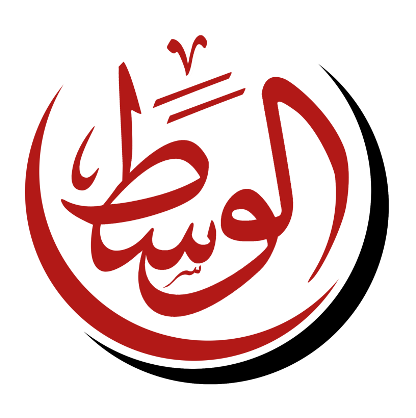After its split from the Muslim Brotherhood in 1996, Al-Wasat Party quickly became the darling of many western academics due to its progressive stance on several democratic issues while maintaining an Islamist identity. Its stated goal was to unite Egyptian society by forming a political party that separated the Islamic da’wa (calling) from the ambitions of a political party.
Through this separation, it hoped to represent a majority of the Egyptian electorate, which it sees as reflecting Egypt’s predominately Islamic character, with a modern political party focusing on the governing aspects needed for the state to function. To this day, members voice their hope of uniting Egyptians through this party whose members believe sits in the middle of the political spectrum in Egypt.
However, the party’s recent support for the Brotherhood-led constitution has placed significant doubt as to whether Al-Wasat Party is concerned with uniting Egyptians at all. Several in the opposition have claimed that in exchange for Al-Wasat support for the constitution the party was rewarded with nine presidential appointees to the Shura Council, a significant total for a party which has had virtually no political success to date.
These actions have upset many in the revolutionary camp and have, in light of Al-Wasat’s designation as an Islamist party, further enforced the prevailing narrative of a societal war between Islamists and non-Islamists jousting for political power.
Al-Wasat Party appears to have taken a political gamble which endangers the party’s viability in the future. In supporting a constitution which was passed exclusively by Islamists, as well as being viewed as favouring the Brotherhood, Al-Wasat has lost support from those in the revolutionary camp. The party’s leadership may have concluded that, in light of its poor electoral performance, this type of political deal was the only means currently available to obtain important legislative positions for its party members.
When I spoke to Amr Farouk, the spokesman for the party, he stated that the appointments of Al-Wasat members to the Shura Council were in no way the result of a political backroom deal with the Brotherhood. Additionally, Farouk added that the party still strives to unite Egyptian society and it continues to act independently and in the best interests of Egyptians. He points to the party’s recent criticism of Prime Minister Hesham Qandil and his Cabinet as evidence that they are not merely pawns of the powerful Muslim Brotherhood political machine.
The strategy of Al-Wasat Party appears to hinge on the idea that by supporting the constitution it has obtained political representation and then can make a quick return to the middle of the Egyptian political spectrum without significant political cost. This strategy, while earning Al-Wasat members positions in the Shura Council, seems shortsighted in light of the current political environment in Egypt.
Moderate political parties associated with defectors from the Muslim Brotherhood, such as the Egyptian Current Party and Strong Egypt Party, did not support the Brotherhood in its constitution-writing process and therefore, continue to be attractive alternatives for those Islamists opposed to the increasingly authoritative nature of the Brotherhood, as well as other moderates.
Despite opposing the constitution, neither party has joined the National Salvation Front (NSF) since they believe the Brotherhood/Salafi alliance along with the anti-Islamist NSF are dividing society along purely Islamist/non-Islamist lines to the detriment of the Egyptian people.
In this sense, they are occupying a political space that bridges the gap between the present Islamist/non-Islamist chasm, a political space which Al-Wasat members wish to occupy. Conversely, in siding with the Brotherhood, Al-Wasat Party has not accomplished one of its main tasks of differentiating itself to the Egyptian electorate from other Islamist parties on the ideological right.
For these reasons, Al-Wasat Party currently has very little electoral room in which to operate after making this political gamble. Clearly, the party has made some significant political gains in the Shura Council, but it has placed doubt on its ultimate political goal of uniting the Egyptian people around a political party which representative of society.
While I do not question Al-Wasat members’ sincerity in attempting to bring Egyptian society together, it is difficult to see how its recent actions help to accomplish this goal. What further complicates matters is the persistence of the Islamist and non-Islamist divide in Egypt; a divide in which Al-Wasat has apparently chosen a side. Far from uniting Egyptians, Al-Wasat Party’s support of the constitution has placed the future viability, along with the goals, of its party in doubt due to the division which the constitution has perpetuated.
Nicholas Gjorvad is a political researcher. He holds Masters degrees in both Philosophy and Islamic and Middle Eastern Studies from the University of Edinburgh.




